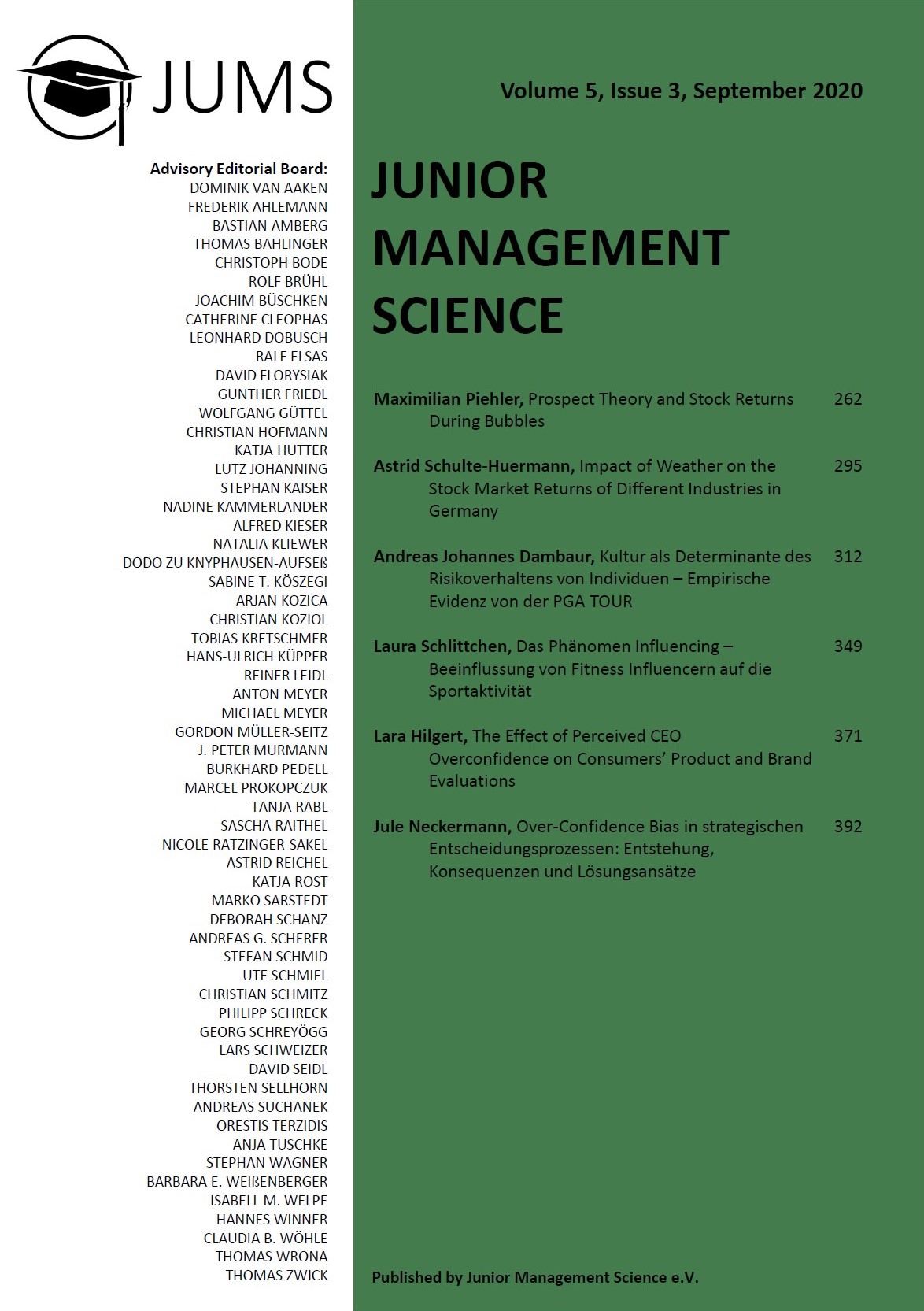Abstract
This work examines the relationship between individuals’ cultural background and their risk-taking behavior in the context of the exercise of their profession. To this end, the risk-taking behavior of professional golfers playing on the PGA TOUR is analyzed using hybrid regression models. The risk-taking behavior is, on the one hand, measured by the decision of golfers to go for the green and, on the other hand, by the standard deviation of players’ scores relative to par on the 18 holes of a round. The players’ cultural background is quantified using the national cultural dimensions according to Hofstede. In addition, it is controlled for various socio-demographic risk determinants, as well as for risk determinants that play a role in tournament situations. The results show that golfers’ cultural background has no robust, significant effect on their risk-taking behavior. At the same time, however, the results confirm the relevance of other risk determinants known in the literature.
Keywords: risk-taking; cultural background; sports economics; behavioral economics.

This work is licensed under a Creative Commons Attribution 4.0 International License.
Copyright (c) 2020 Junior Management Science e.V.

